dClimate Ecosystem Roundup H1 2024 - Partnership with Tata Consultancy Services
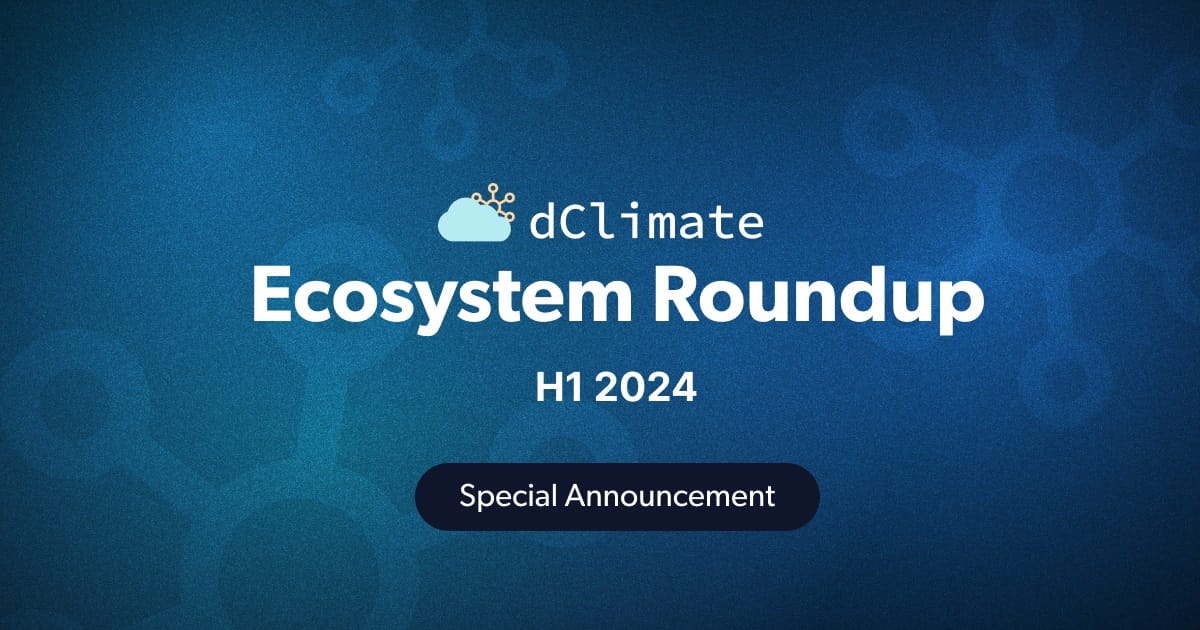
Thanks for tuning in to another news roundup of dClimate's expanding ecosystem. This edition covers all major developments and content from the first half of 2024, including an exciting announcement regarding Aegis, our comprehensive solution for physical climate risk management.
Here is an overview of all the news in our ecosystem! 📰

dClimate and Tata Consultancy Services Partner to Leverage Aegis Climate Risk Assessment Platform
Last year, we introduced Aegis, an advanced physical climate risk assessment platform capable of analyzing 14 types of climate hazards. This tool aids businesses in adhering to required climate-related financial disclosures, enhancing their ability to manage climate risks effectively.
Yesterday, we announced dClimate's strategic partnership with Tata Consultancy Services (TCS) to integrate our Aegis climate risk assessment platform with TCS's Intelligent Urban Exchange™ (IUX). This collaboration will enhance how businesses assess and mitigate physical climate risks, providing advanced AI-driven sustainability decision-making tools.
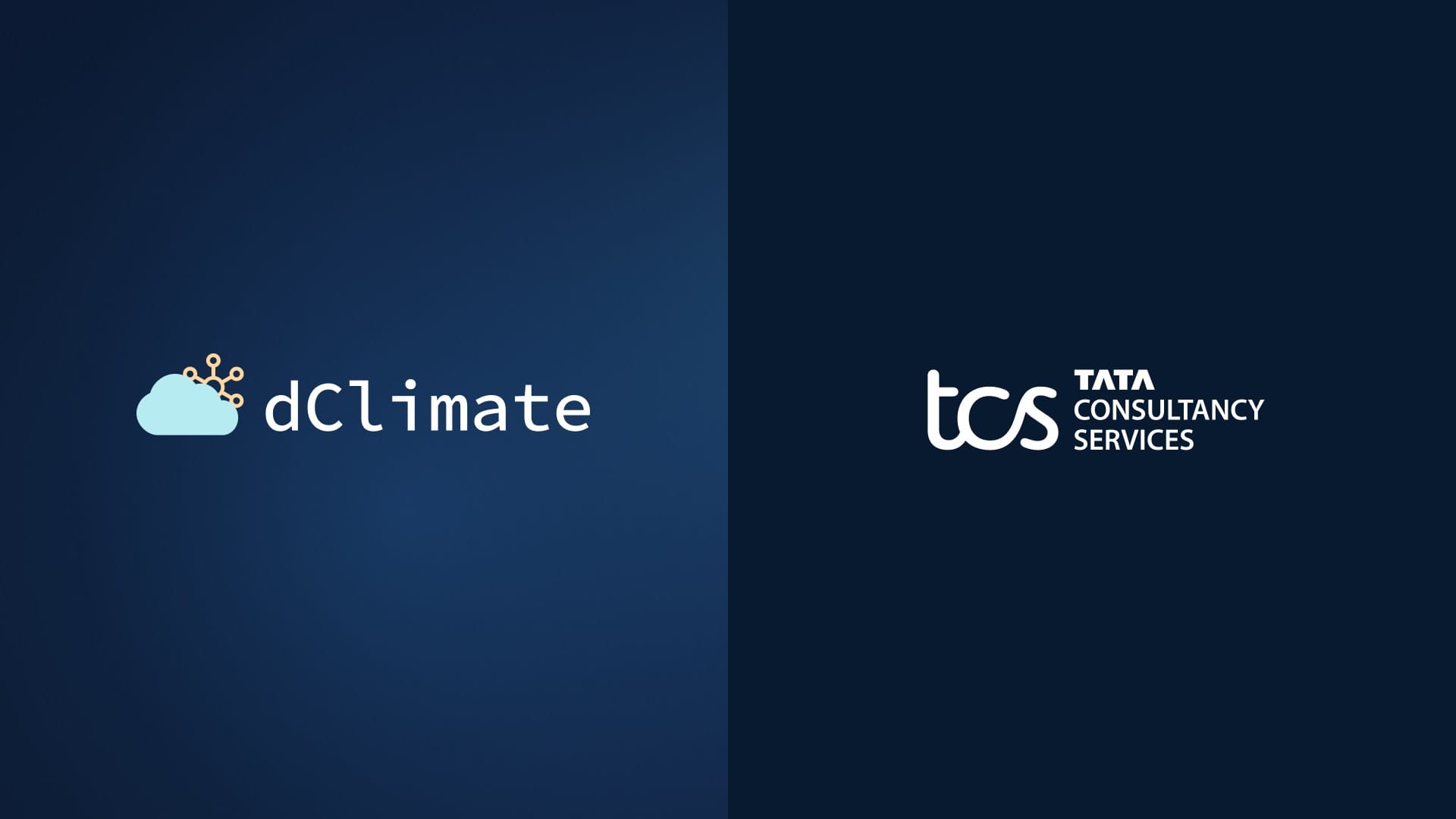
For a refresher on why we have built Aegis, please read our introductory blog:
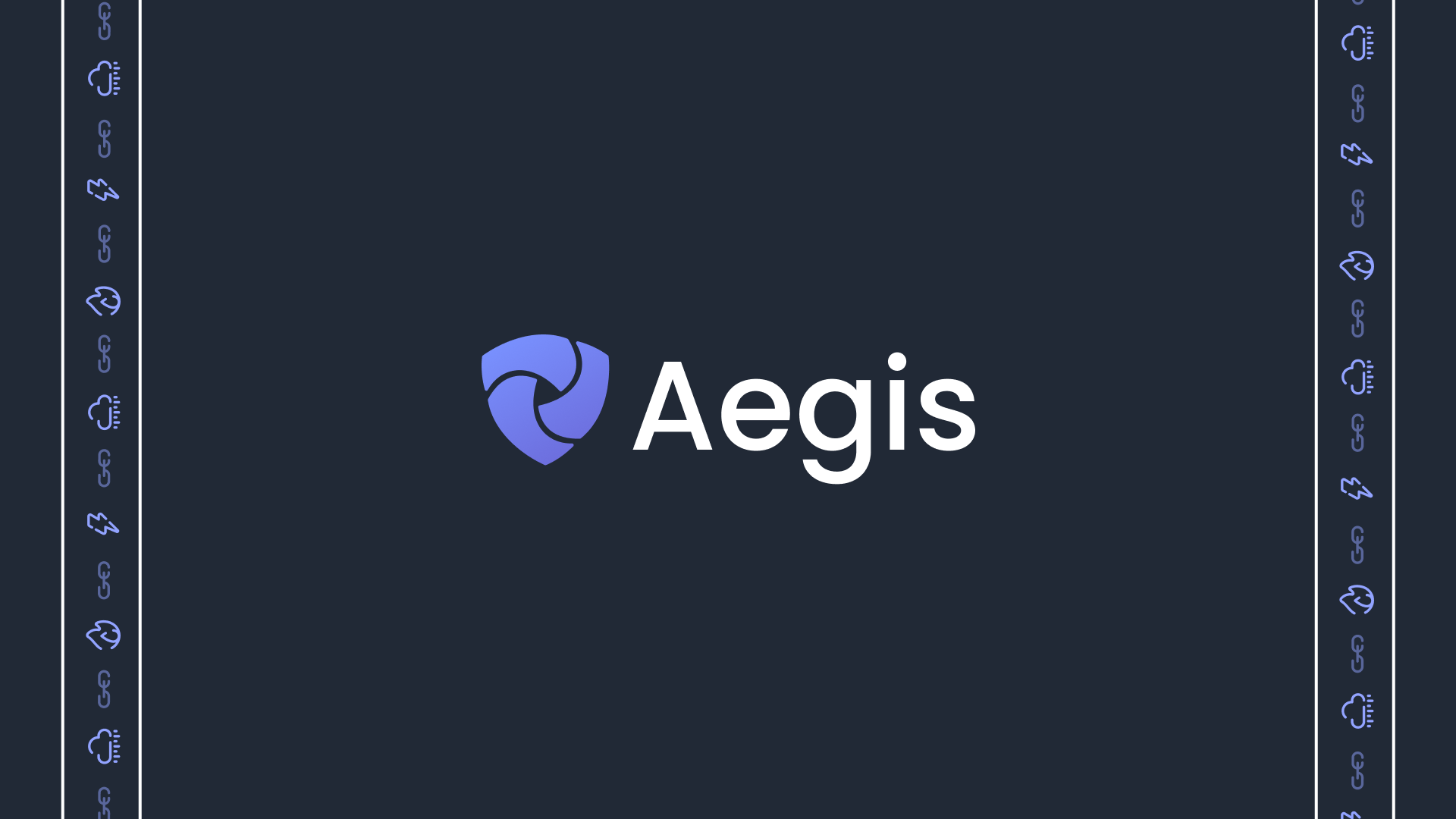
Aegis Product Updates
Over the last six months, the Aegis team has been diligently enhancing our AI-powered climate risk management platform with substantial updates to improve functionality, speed, and user experience.
Some of the noteworthy updates of the last period include:
- Improved visualizations for comparing how exceedance probabilities and projected frequencies change under five different climate scenarios and time periods.
- Integrated historical data for every location, allowing users to specify an event magnitude or return period, and see how often such an event occurred in the past.
- Added projections for heating degree days and cooling degree days to help clients understand how energy costs related to heating and cooling can change in the future.
- In addition to our subscription tier, we have added a “Pay As You Go” option that allows users to quickly create an account and run physical climate risk assessments on their own.

Carbon Financing Mechanisms and Digital MRV Technologies in the Voluntary Carbon Market
Over the past six months, we have published several detailed articles on developments in the voluntary carbon market (VCM). Our carbon team covered topics such as price dynamics of carbon credits, digital measurement, reporting, and verification (MRV) technologies, jurisdictional REDD+ schemes, and international collaboration programs including Article 6 and CORSIA.
These critical subjects were also discussed in a recent webinar with experts from Allcot, Mirova, and Abatable. Watch the video below for the timestamped recording of this in-depth panel discussion.
Measurement, Reporting, and Verification (MRV)
Effective MRV processes ensure the accuracy and integrity of carbon credits by tracking, documenting, and validating emissions reductions. Our article explores the current state of MRV and discusses the emergence of digital MRV solutions, which incorporate state-of-the-art technologies like AI and remote sensing to enhance the efficiency and scalability of monitoring processes in carbon projects.
Learn how digital MRV systems tackle critical challenges of traditional MRV:
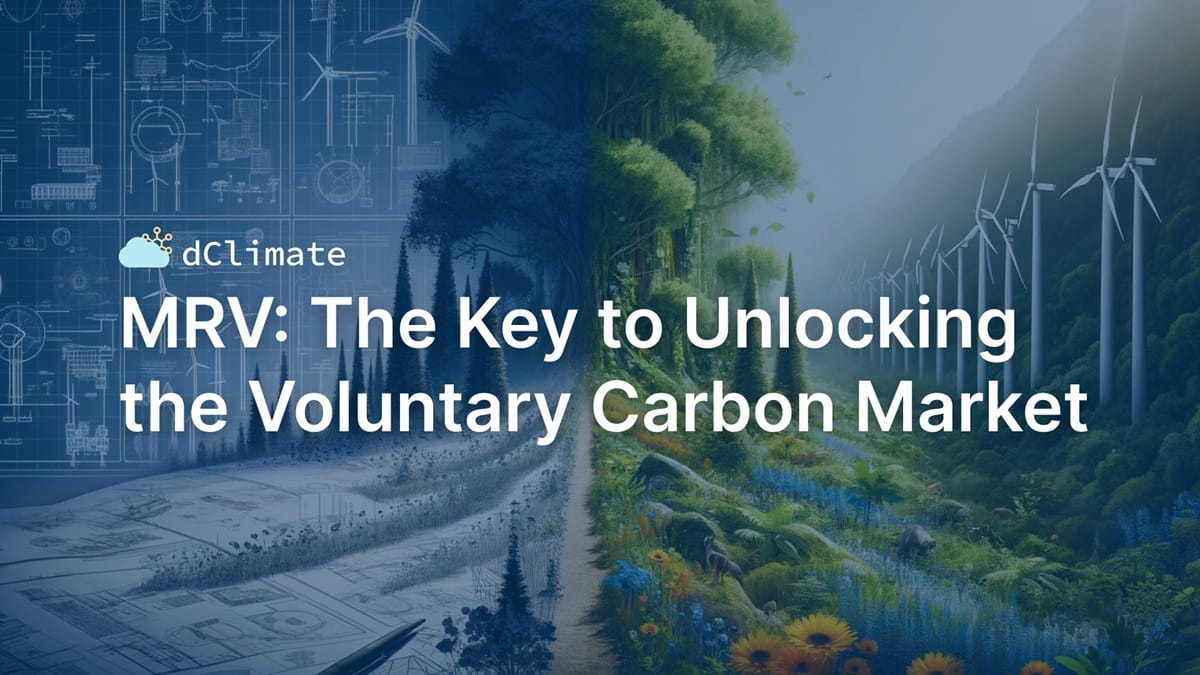
Monitoring natural capital is the core of a digital MRV solution. CYCLOPS, powered by dClimate's data infrastructure, leverages advanced technologies to monitor and forecast forest health.
Restoring Confidence in Forest Preservation Efforts
Forest preservation initiatives such as REDD+ projects, face issues such as negative publicity, implementation complexity, funding shortages, and difficulties in monitoring and verification. To restore confidence in these efforts, we emphasize the need for digital MRV technologies, stronger local involvement, robust legal frameworks, and continuous improvement based on past experiences.
Read our article to dive deeper into these topics:
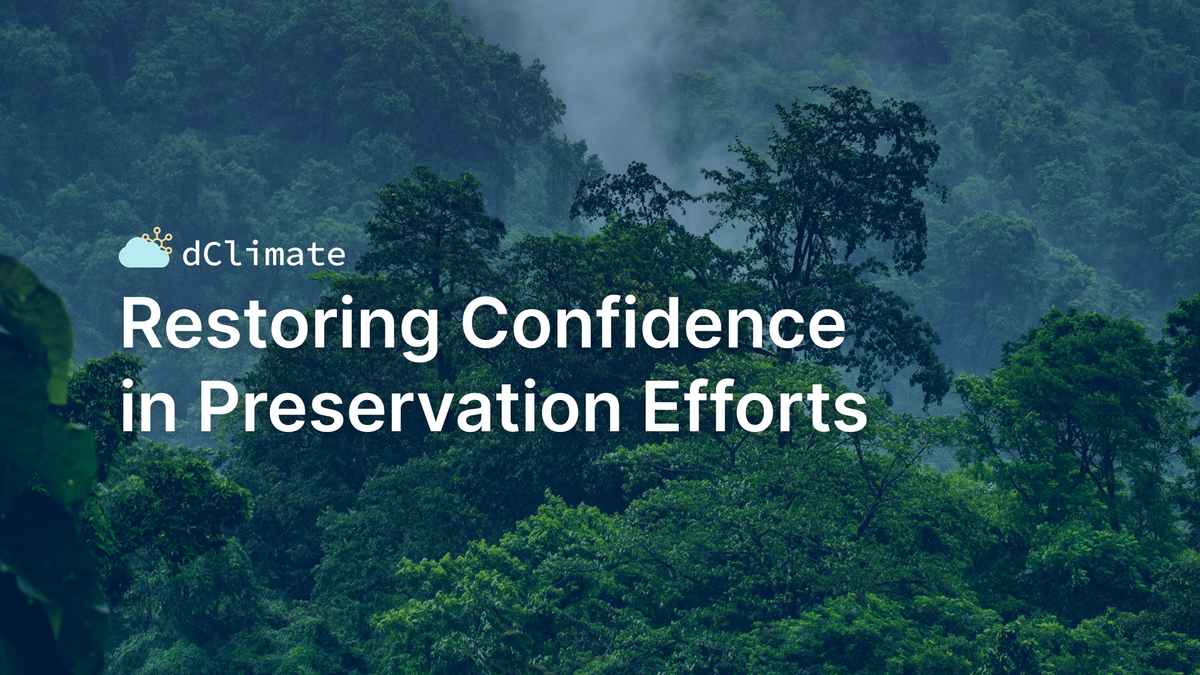
Price Dynamics in the Voluntary Carbon Market
Carbon credits operate within a complex market, akin to other commodities, involving a network of producers, traders, and brokers. Our recent article explores the various factors that influence carbon prices, such as project type, jurisdiction, vintage, and additional benefits like biodiversity. We underscore the necessity for transparent and standardized pricing mechanisms to scale the impact of the VCM.
For more details, read the full article here:
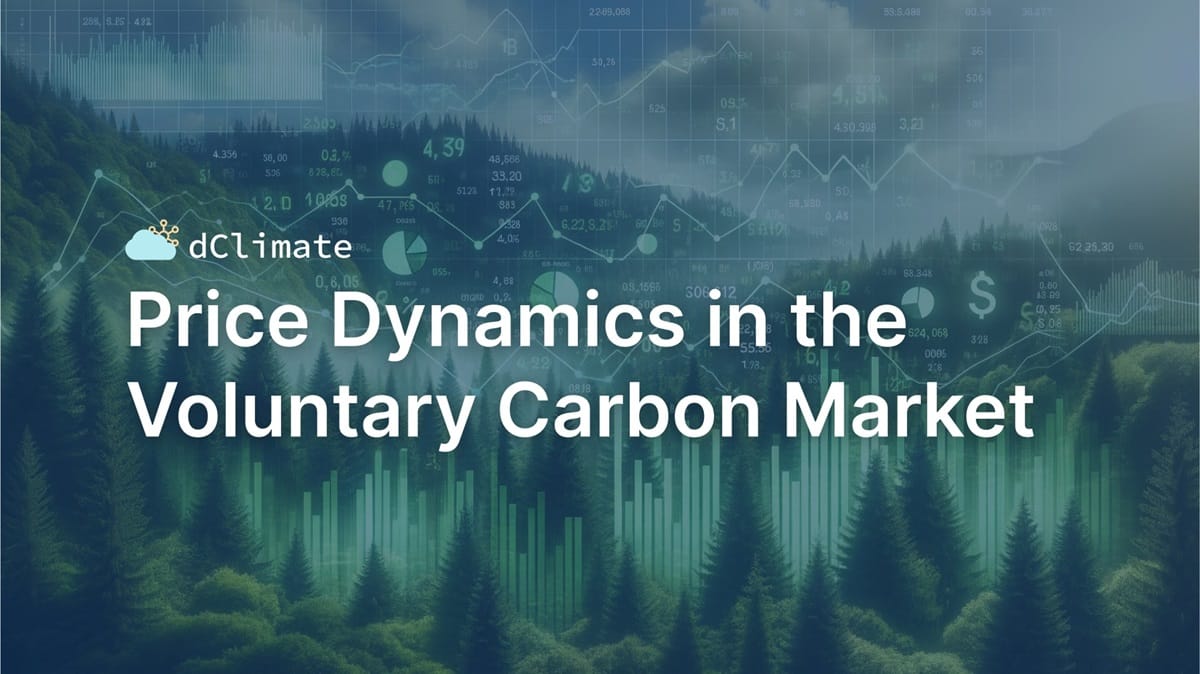
Jurisdictional REDD+ Schemes in the VCM
J-REDD+ programs and results-based payment (RbP) schemes are gaining traction as effective ways to fund carbon projects. We've released a detailed piece exploring how these mechanisms address challenges like leakage and inflated baselines in the voluntary carbon market.
Discover the full potential of J-REDD+ programs by reading our complete article:
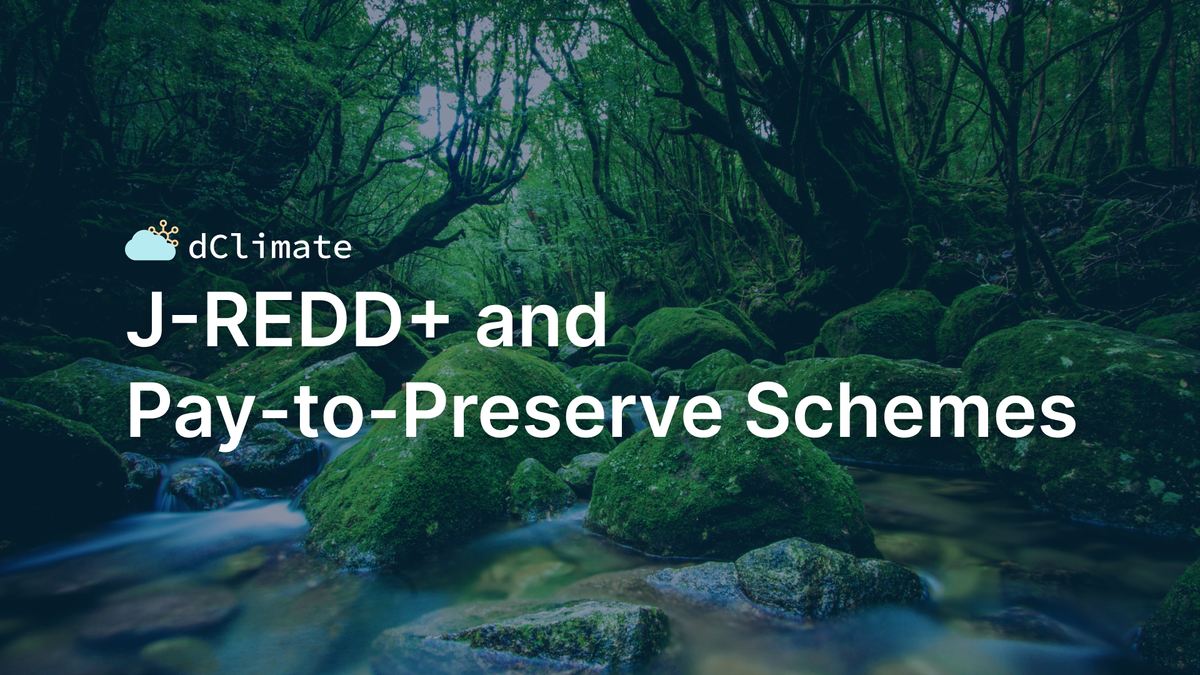
How More Global Collaboration Benefits the VCM
Our latest article emphasizes the necessity of international cooperation in the voluntary carbon markets, using frameworks like Article 6 of the Paris Agreement and the Carbon Offsetting and Reduction Scheme for International Aviation (CORSIA). We also touch upon the role of robust governance and regulatory measures.
For a comprehensive overview, read the full article below:
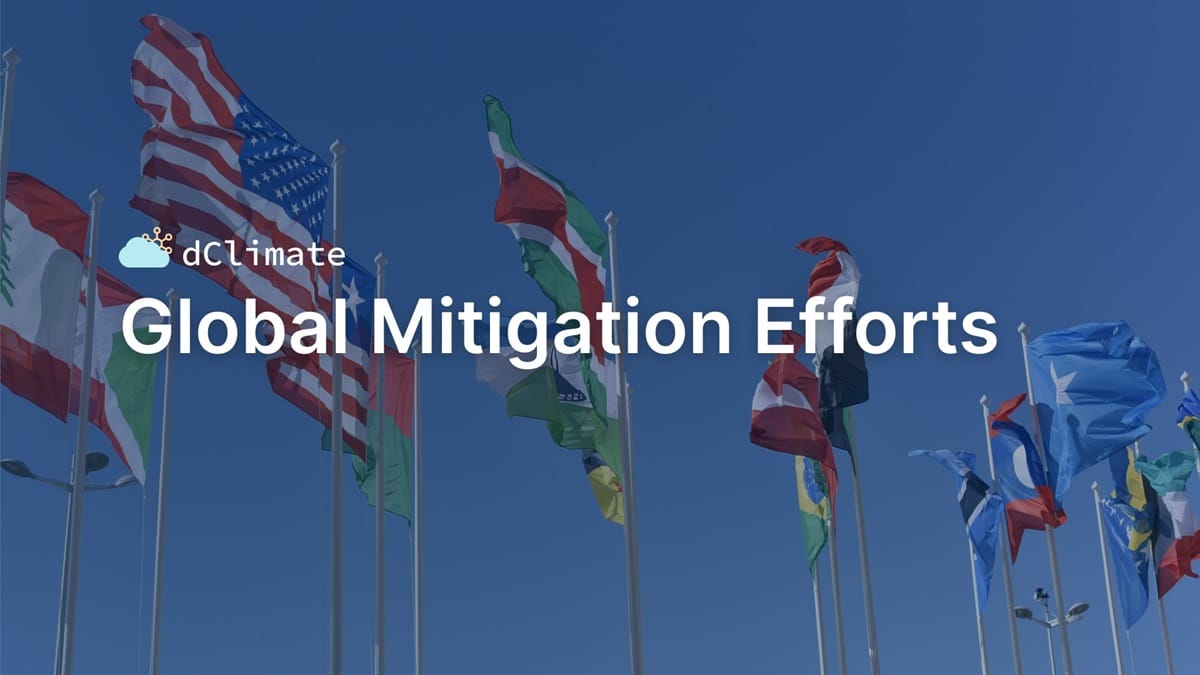
News Headlines
- Two-Time NBA Champion DJ Mbenga Joins dClimate Advisory Board to Lead Climate Finance Initiatives in the Democratic Republic of Congo
- We Joined Invest.Green
- dClimate's Co-founder Sid Jha Appeared on Channels Television
- Digital MRV: The Catalyst for Scale, Trust, and Maturity in Global Voluntary Carbon Markets (CYCLOPS blog)
- Why The Voluntary Carbon Market Is Worth Salvaging (Forbes interview with Sid Jha)

Comprehensive Climate Data, Made Easy
dClimate's marketplace and decentralized infrastructure for climate data are core elements of our mission. Easy access to reliable and institutional-grade climate data is essential for verifiable climate impact.
Over the past quarter, we've advanced the development of our data marketplace, targeting a public beta release later this year. We've re-engineered key aspects of the marketplace for greater robustness and scalability. Additionally, we're improving the user experience by developing more tools, including SDKs, tailored for climate researchers and data scientists.
Thank you for reading this roundup! 💙
We appreciate your interest in our company and our data-driven climate tech products. If you haven't already, follow us on Twitter and LinkedIn to keep up-to-date with the latest developments and join our Discord to connect with the team and share ideas with other community members.


